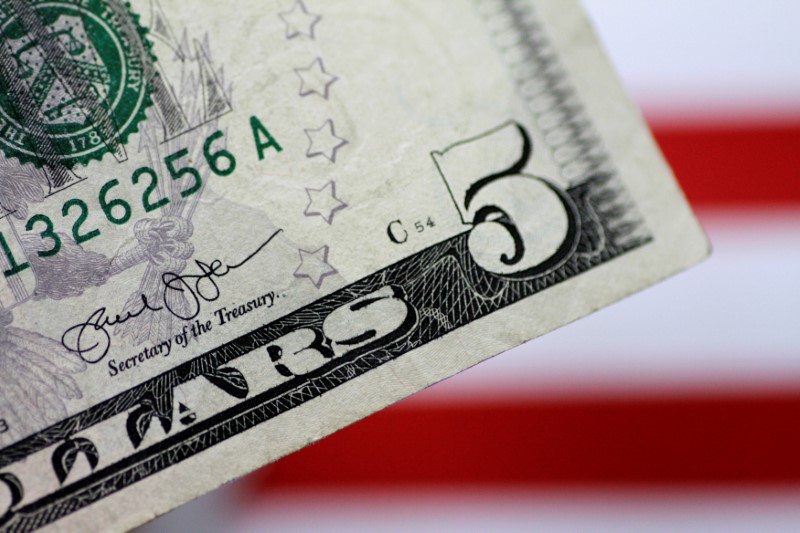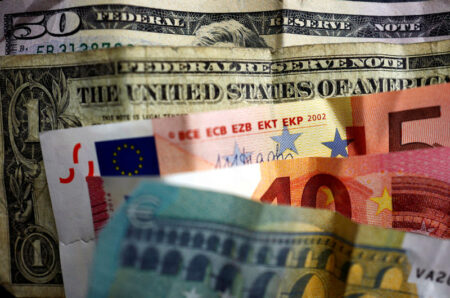Investing.com — Most Asian currencies retreated on Thursday, while the dollar rose after stronger-than-expected payrolls data helped overcome concerns over a U.S. rating downgrade by Fitch.
Markets remained largely risk-averse after the Fitch move, which kept Asian units under pressure and spurred more safe haven demand for the greenback.
Risk-heavy currencies such as the and the fell 0.1% and 0.2%, respectively, after sharp losses this week, while the lost 0.2% after the Bank of Japan carried out another unscheduled bond buying operation.
The fell slightly as data showed the country’s remained steady in June, while fell less than expected in the second quarter.
Dollar firms as strong payrolls offset rating downgrade jitters
The dollar rose in overnight trade on Wednesday after private data showed that grew substantially more than expected in July. The reading pushed up concerns over a similarly strong reading from official data, which is due on Friday.
Any signs of strength in the labor market give the Federal Reserve more economic headroom to keep raising interest rates – a scenario that bodes well for the dollar and poorly for risk-driven assets.
The and rose 0.1% each in Asian trade, after adding 0.3% on Wednesday.
The strong payrolls reading also helped the greenback trade past concerns over a downgrade to the U.S. sovereign rating by Fitch. The ratings agency cited increased concerns over stretched fiscal spending and headwinds from growing political partisanship.
But analysts said that while the move will spur some risk aversion, the downgrade is unlikely to have broader ramifications for global financial markets.
Concerns over the downgrade, coupled with growing anticipation of Friday’s payrolls reading, kept most Asian currencies trading negative this week. Markets were also awaiting a widely expected interest rate hike from the later in the day, with the trading sideways.
Chinese yuan outperforms on strong services PMI
The was among the sole gainers for the day, rising 0.3% to the dollar after a showed that the country’s service sector grew more than expected in July.
The reading showed that some facets of the Chinese economy – particularly retail spending and services demand – still remained robust, despite severe slowdowns in manufacturing and the property market.
But markets were still awaiting more signals on stimulus measures from the government. While officials promised more measures to support local spending, they were yet to outline more details on the proposed measures.
Read the full article here












